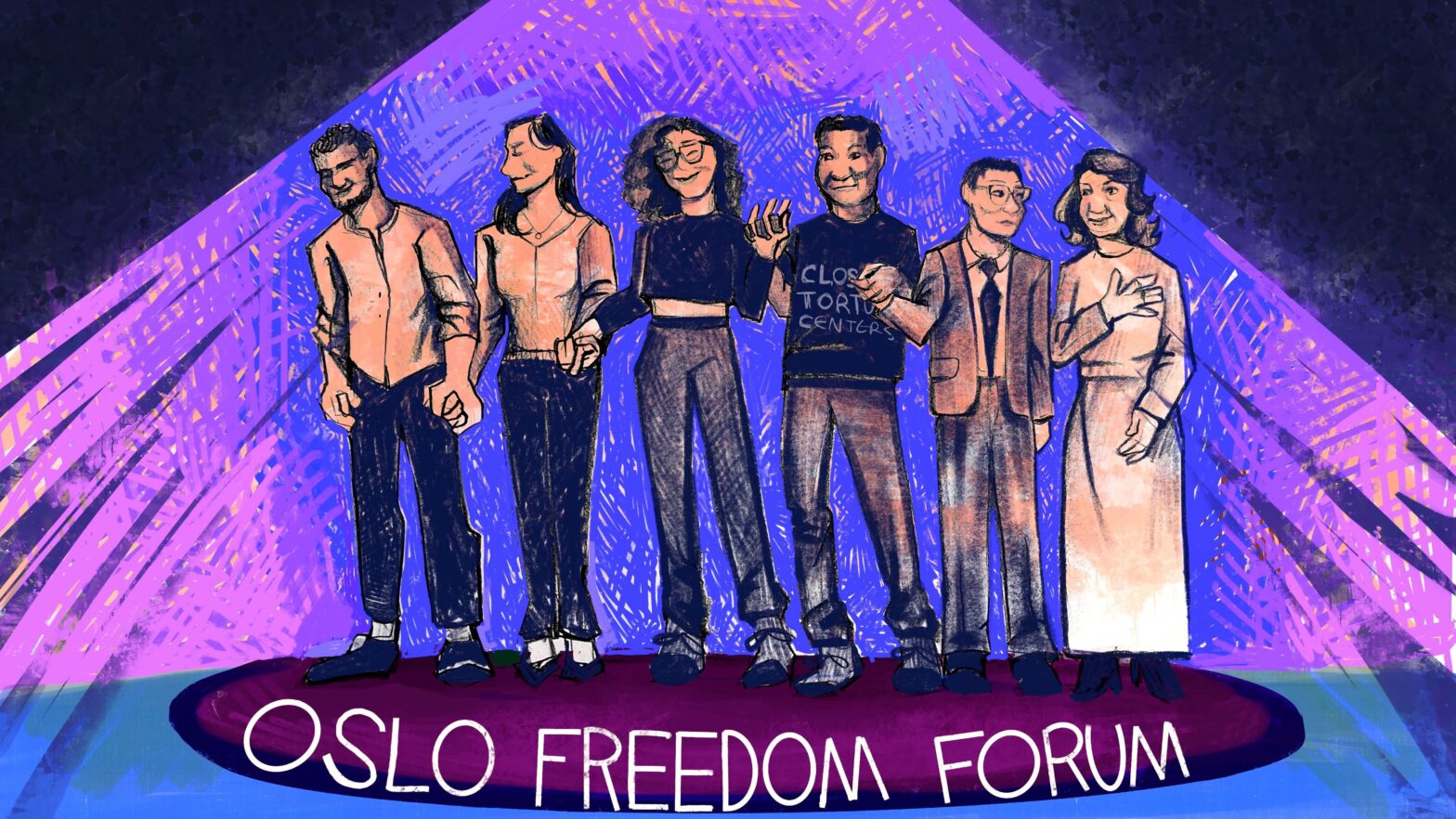In 2018, then-22-year-old Victor Navarro was arbitrarily and illegally detained in El Helicoide, “Venezuela’s largest and more notorious torture center,” according to the Human Rights Foundation (HRF). As a university student, Navarro had started an organization that reintegrated young people into society who had become homeless as a result of participating in protests. It was this social work, seen as a crime under the rule of president Nicolás Maduro, that led to the imprisonment and torture of Navarro.
Five years later, Navarro spoke at the annual NYC Oslo Freedom Forum, receiving a standing ovation from the audience. Navarro detailed that, while imprisoned, he was not permitted visitors, phone calls, or a lawyer. After five months of physical and psychological abuse, Navarro fled to Argentina, where he currently lives in exile. He is now the executive director of Voces de la Memoria (Voices of Memory), a museum that uses virtual reality to recreate El Holicoide and its crimes. This technology, and the way in which it allows the user to be immersed into another’s experience, is what Navarro believes is the best way to generate empathy for those who are incarcerated.
Navarro’s speech revolved around a question reiterated by officers at El Helicoide that still haunts him today: “Who are you?” He reflects on how he was dehumanized within the torture center, struggling to see himself outside of the prisoner number given to him. Though he still fights to overcome this question, Navarro has dedicated his life to the pursuit of freedom. “Above all,” he says, “I am what I decide to do with what I’ve lived.”
“The idea is not to be silent and to speak up as much as possible,” said Navarro in an interview translated by the HRF’s Senior Policy Officer, Alvaro Piaggio. “You can do that by bringing everyone together and understanding that this is a universal, global fight that you’re in.”
The fight towards freedom is not without setbacks. Surrounding governments ignore these crimes against humanity in the interest of sustaining their own economic, political, and ideological ties with Venezuela. Navarro said that his family still lives in Venezuela and regularly receives threats from the regime.
With the political and economic landscape of countries around the world becoming more tumultuous by the day, Navarro has found it difficult to encourage global action to combat human rights violations and political imprisonments. “The world is in a bit of chaos right now. There was a moment, perhaps a few years ago, where Venezuela was more or less in the spotlight, and there was a chance for a transition,” Navarro said. But now, he said, “In the world’s agenda, Venezuela has taken a back seat.”
At a recent protest he organized in Times Square, Voces de la Memoria gave passersby VR headsets, virtually situating the participants in the horrors of El Helicoide. The event took place just over a mile from the United Nations headquarters, where hundreds gathered for the 78th General Assembly, increasing exposure of Voces de la Memoria. The protest was also covered by The Washington Post.
“Autocrats love to divide people,” Navarro said, emphasizing once more the vitality of being united under an issue. “They love to create wedges between groups in civil society, and that’s how they win.”
In addition to Navarro, the 2023 Oslo Freedom Forum showcased a number of activists, artists, survivors, and performers – even featuring comedian and freestyle rapper Chris Turner in the lineup. A few others included: Gulbahar Haitiwaji and Kalbinur Sidik; survivors of China’s concentration camps, Nazanin Boniadi; an Iranian actress and activist, and Pastor Seungeun Kim; Korean activist and leader of a “modern-day underground railroad.”
“You ensure their stories are not forgotten,” said President of the HRF, Céline Assaf Boustani, in her closing remarks of the Forum. “You have power. You have the freedom to speak up. And we all must, together, help this fight against tyranny. And believe me, no action is too small to spark change.”








Leave a Reply